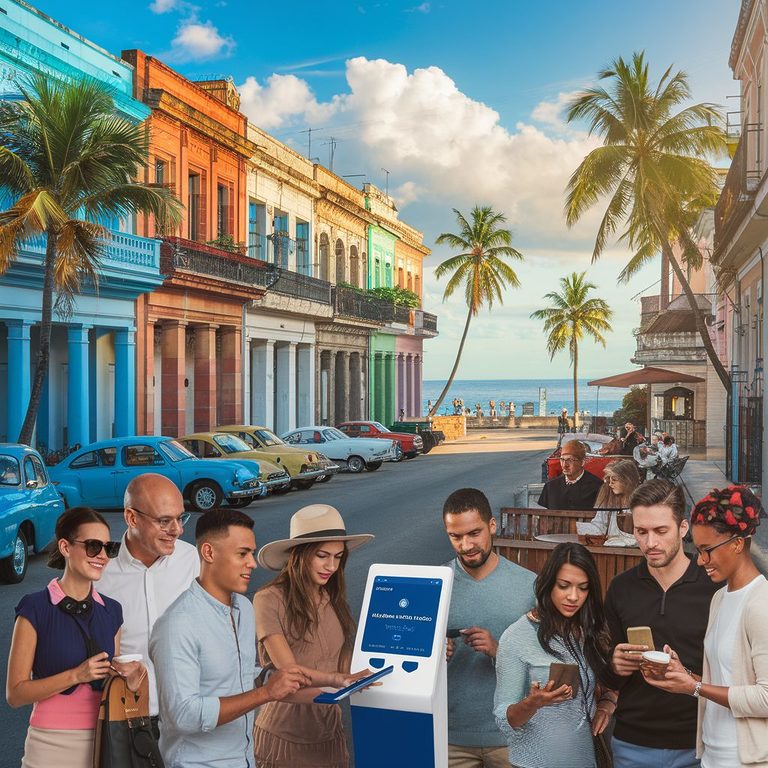Uruguay has taken a significant step towards addressing the longstanding passport issue faced by its naturalized citizens, which had previously hindered their ability to travel internationally. Due to a misinterpretation of international standards, many individuals found their passports rendered invalid for travel, affecting thousands and creating a profound sense of uncertainty. Recent administrative corrections promise to enhance their travel experience, ensuring that all Uruguayan citizens, regardless of their origins, can navigate the world with valid documentation.
In a significant move aimed at rectifying a longstanding administrative issue, Uruguay has recently addressed a passport problem affecting its naturalized citizens. For years, many individuals who had obtained Uruguayan nationality faced severe travel restrictions due to incorrect information on their passports. This article delves into the details of these recent changes and their implications for naturalized citizens in Uruguay.
The Background of the Passport Issue
For many years, Uruguay stood out for a unique administrative practice that adversely impacted thousands of naturalized citizens. The root of this problem stemmed from a misinterpretation of international standards, specifically concerning the documentation of nationality on passports. Instead of indicating the Uruguayan nationality of naturalized citizens, the country of birth was listed, leading to international travel complications.
Misinterpretation of International Civil Aviation Standards
The crux of the issue lay in a literal interpretation of the International Civil Aviation Organization (ICAO) Manual 9303. While the English version refers to “citizenship,” the Spanish translation utilized the term “nationality,” causing confusions in how passports were issued. In certain cases, the nationality field was even left blank, especially for those who had lost their original nationality due to naturalization, a common scenario in countries that prohibit dual nationality.
Consequences Faced by Naturalized Citizens
This flawed protocol affected approximately 16,000 naturalized citizens, with around 1,500 new cases cropping up each year. A telling example can be seen in the case of Gulnor Saratbekova, a Tajik native living in Uruguay for over two decades. Having lost her Tajik nationality, she found herself trapped as she could neither travel on a Tajik passport nor utilize her Uruguayan passport internationally, leaving her feeling like she belonged nowhere.
Legal and Human Rights Implications
The complications arising from the passport issues went beyond mere inconveniences. The matter was elevated to the European Court of Justice and the Inter-American Commission on Human Rights, highlighting potential violations regarding the right to nationality and identity of affected individuals. The refusal of entry, rigorous visa requirements, and detentions at borders were just a few examples of the difficulties encountered by these citizens.
A Significant Administrative Correction
“Nationality/Citizenship” and denoting “
URY
” as the code for all citizens, irrespective of their birth status. Furthermore, the “Place of birth” field has been abolished, creating a more streamlined and accurate document in compliance with ICAO requirements.
The First Steps Towards Restoration
The first recipient of the amended passport was none other than Gulnor Saratbekova herself, marking a significant milestone on April 16, 2025. This adjustment not only resolves the immediate travel challenges faced by many but also showcases the Uruguayan government’s responsiveness to citizen needs and the operational effectiveness of its administrative systems.
The Need for Legal Reform
While the recent changes are a positive step toward solving pressing travel issues, they do not fully address the foundational problem. The Uruguayan Constitution continues to create a distinction between “”natural citizens”” and “”legal citizens””, which could foster further challenges. There is an ongoing push from the National Human Rights Institution to initiate discussions in Parliament aimed at constitutional reform, advocating for equal treatment of all Uruguayan citizens.
Such reforms are crucial for ensuring that naturalized citizens can freely express their Uruguayan identity and travel without the burdens imposed by outdated administrative interpretations.
For additional information on travel regulations and implications for citizens, you can check out this article regarding the UK’s ETA implementation, or learn about various e-visa initiatives like the Cambodian e-visa program. Other relevant topics include visa complications faced in Thailand and Liptako visa developments. To further understand the timeline, it is also helpful to be aware of important deadlines for visa use in different contexts.
- Issue Identified: Passports of naturalized citizens were unusable due to misinterpretation of nationality.
- Impact: Affected approximately 16,000 naturalized citizens.
- Administrative Error: Incorrect terminology led to lack of recognition by some countries.
- Legal Challenges: Situation raised human rights concerns regarding nationality.
- Recent Correction: Passport now states “Nationality/Citizenship” for all citizens.
- First Beneficiary: Gulnor Saratbekova received new passport, ending years of issues.
- Broader Implications: Calls for constitutional reform to unify definitions of citizenship.
The recent decision by Uruguay to rectify a longstanding passport issue for its naturalized citizens marks a crucial step in enhancing their travel experience. For years, many naturalized individuals faced significant challenges due to incorrect references to their nationality on passports, making international travel nearly impossible. This situation stemmed from a misinterpretation of the International Civil Aviation Organization standards, where the nationality field inaccurately reflected country of birth instead of their new citizenship. With the recent administrative adjustments, passports will now clearly state Nationality/Citizenship and ensure proper recognition, ultimately promoting freedom of movement for about 16,000 affected citizens. This reform not only resolves immediate travel obstacles but also emphasizes the need for further constitutional changes to recognize the rights of all Uruguayan citizens equally.

Hello! I’m Elisa, a 45-year-old travel companion with a passion for exploring new places and cultures. With years of travel experience under my belt, I thrive on creating memorable journeys for my clients. Let’s embark on an adventure together!





